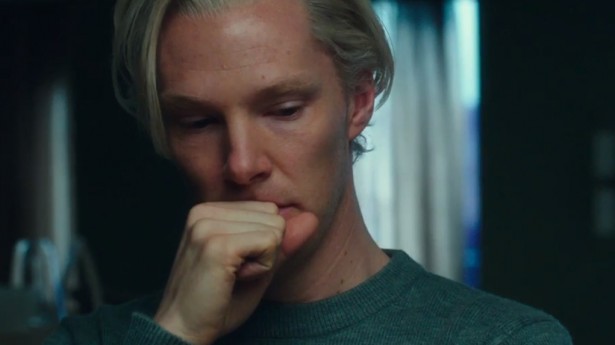Reviews
Movie review: “The Fifth Estate”

The Fifth Estate
dir. Bill Condon
Release Date: Oct 18, 13
- 1
- 2
- 3
- 4
- 5
- 6
- 7
- 8
- 9
- 10
Well, at least if you don’t know anything about Julian Assange or Wikileaks or the new ways in which information is distributed, disseminated, and/or framed on the internet, The Fifth Estate will serve as a helpful guide. A movie that feels either five years too late or too early depending on one’s perspective, The Fifth Estate doesn’t offer up anything particularly scandalous about Assange (Benedict Cumberbatch) or his relationship with Wikileaks cohort Daniel Berg (Daniel Bruhl) or his role in changing the ways that governments cover their tracks. It doesn’t comment on his reputedly sordid personal life, except to ickily imply that all that sexual assault stuff probably isn’t all it’s been cracked up to be. Really, it doesn’t say much of anything.
Lest this review come off as a total attack on the film, The Fifth Estate isn’t bad per se. Starting with the early days of Wikileaks as Assange’s moral crusade toward a world of total governmental transparency, for better or worse, and following his journey from rebellion to global notoriety to eventual ignominy, the film simply follows Assange and Berg as they change the world while drifting further and further apart. Though Bruhl turns in characteristically strong work, Berg is less a character than a cipher through which director Bill Condon can lead audiences from one from-the-headlines talking point to the next. Condon uses a lot of these visual aids throughout, particularly the sort of scrolling-code visuals that represented The Technological Future in so many ‘90s computer thrillers.
The brightest spot is Cumberbatch. Though his primary obligation seems to be the interpretation of how Assange would have reacted to each of his big headline moments in real life, Cumberbatch fluctuates effortlessly between hubristic smugness and true idealism. He’s a self-imagined cult leader who’s become so enamored with his own growing legend that he feels increasingly obligated to fulfill his own prophecy and release more and more revealing information, even when doing so directly conflicts with his deeply-held principles related to protecting sources. As a movie The Fifth Estate seems to have precious little to say about any of this outside of introducing Laura Linney and Stanley Tucci far too late into the proceedings as U.S. officials trying to reason through Assange’s escalating acts.
Are those acts of espionage and treason, or honest revolution, or both, or somewhere in between? This question has been mulled over for so long and in so many places now that The Fifth Estate ultimately feels late to the party. That Condon doesn’t seem to have any particularly strong feelings on the topic doesn’t help, nor does the film’s lack of forward momentum anytime Cumberbatch is offscreen. Since Assange’s future is still very much in flux, there’s no real statement for The Fifth Estate to make beyond serving as a condensed biopic about what a guy did so far in history. And when its idea of contemplating what comes next fails to extend beyond heavy-handed conversations carried on about Assange’s importance, conversations that usually only exist in the movies, it’s hard to imagine what statement the film really could make at all.